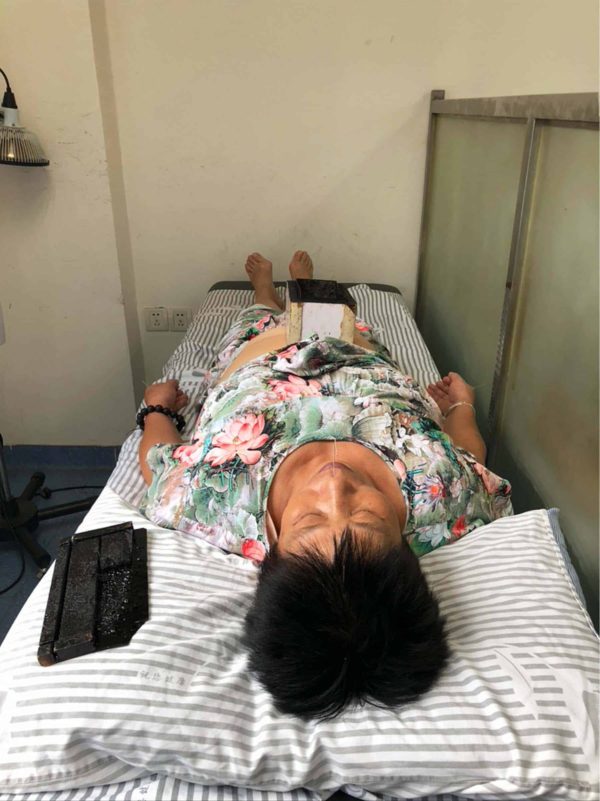Research One
OBJECTIVE:
To describe the adjunctive use of acupuncture in a young woman with Interstitial Cystitis (IC) who had been treated previously with most of the available conventional modalities.

A patient receiving Acupuncture for interstitial cystitis
RESULTS:
The patient reported rapid improvement in voiding symptoms after the 1st treatment. Pain levels rapidly diminished, permitting
a reduction in the use of 1 of the detrusor stabilizer medications and most narcotic analgesics.
CONCLUSION:
Acupuncture treatment enabled this patient with IC to reduce her medication use and experience an enhanced quality of life.
Research Two
Medical Acupuncture
ACUPUNCTURE AND CYSTITIS
Two controlled trials in Norway with positive results have indicated that acupuncture may be a worthwhile alternative in the prevention of frequently recurring cystitis in women (Aun 1998; Alraek 2002) (see Table overleaf)
Acupuncture may help in the treatment of cystitis by:
• reducing inflammation, by promoting the release of vascular and immunomodulatory factors (Kim 2008, Kavoussi 2007, Zijstra 2003); reducing pain and swelling (Lorenzini 2010)
• improving bladder irritation by inhibition of capsaicin-sensitive C-fibre activation (Hino 2010).
Medical Acupuncture is a coined term for western trained physicians ie. MD’s who practice or get certified in Medical Acupuncture.
The standard is 200 hours. Basic acupuncturists train over 2,800 hours. Advanced acupuncture physicians with doctorates have over 4,300 hours. Ph.D. acupuncturists exceed 5,500 hours. Patients should research their provider’s training diligently.